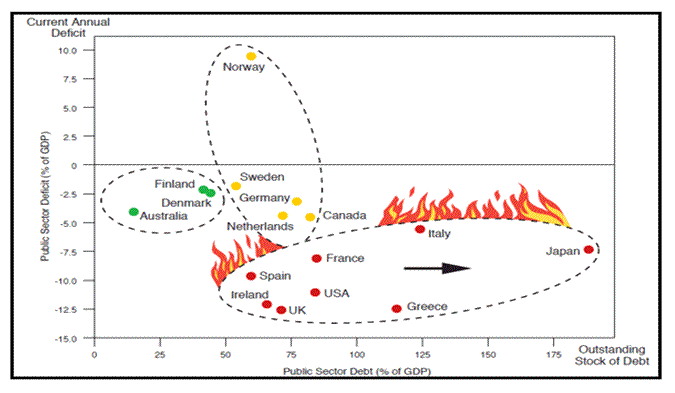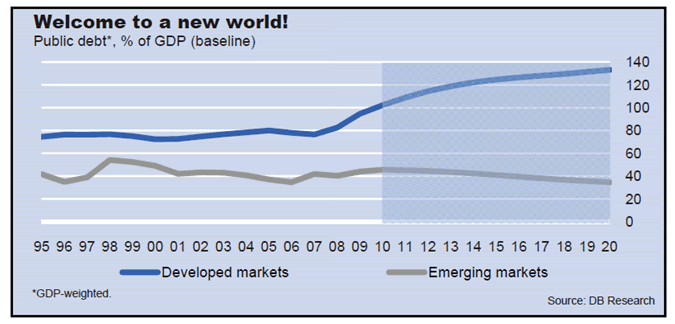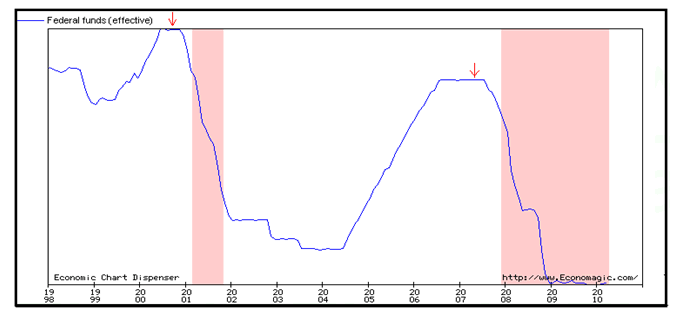Central Banks Blowing Asset Bubbles
Stock-Markets / Liquidity Bubble May 28, 2010 - 02:26 AM GMTBy: Puru_Saxena
 BIG PICTURE – Let’s face it; central banks are blowing another asset bubble. As if two burst bubbles in the prior decade are not enough, the money maestros have decided to fuel another speculative orgy.
BIG PICTURE – Let’s face it; central banks are blowing another asset bubble. As if two burst bubbles in the prior decade are not enough, the money maestros have decided to fuel another speculative orgy.
Let there be no doubt, both the technology and real-estate bubbles were spawned by cheap credit and it is now clear that the central banks have learned nothing from those two episodes. Despite the fact that near-zero interest-rates caused the previous mishaps, the central banks are (once again) pursuing a suicidal monetary policy. By keeping interest-rates well below the rate of inflation, the officials are encouraging speculation, thereby sowing the seeds of yet another asset bubble.
At present, the yield curve is steep in most nations and the cost of borrowing is low, so is it any surprise that asset markets are rallying? All over the world, asset prices are inflating again and dangerous excesses are around the corner. Only this time around, the public sector in the West is already over-leveraged and when the next asset bubble bursts, governments will not be able to come to the rescue.
Today, most of the developed world is drowning in debt and various industrialised nations face severe deficits (Figure 1). Moreover, these over-indebted economies are struggling to grow, therefore it is highly unlikely that their stock markets will provide leadership.
Figure 1: Serious problems in the developed world

Source: PIMCO
Now, given the fact that the developing world is growing much more rapidly, it is highly probable that the emerging market equities will benefit the most from asset inflation.
Apart from sporting superior growth rates, it is worth noting that the developing nations have relatively low debt levels. It is our contention that this combination of strong economic growth and compressed leverage will be sure to catch investors’ attention.
Figure 2 highlights the huge discrepancy between the fiscal health of the industrialised and developing nations. As you can see, public debt relative to the economy is already very high and likely to surge in the developed world, whereas this ratio is expected to decline in the developing world. Therefore, over the next decade, we can expect more and more investors to shift their capital from the debt plagued developed nations to the healthy developing economies.
Figure 2: A two-tier economy

Source: DB Research
Historically, the developing markets have traded at a valuation discount when compared the developed markets. However, over the coming years, we suspect that the ‘risky’ developing markets will command a valuation premium relative to the industrialised world. Put simply, when you factor future earnings growth and an expansion in valuations, the developing markets are prime candidates for the next asset bubble.
Since the turn of the millennium, we have favoured the developing countries in Asia and we continue to like China, India and Vietnam. In our view, these economies will prosper for different reasons and their stock markets will reward long-term investors. Now, there can be no doubt that both China and Vietnam have been disappointing over the past few months, but we view the ongoing consolidation as a fabulous buying opportunity.
In addition to the developing nations in Asia, we believe the energy sector is also a worthy candidate for the next asset bubble. In fact, when the realities of ‘Peak Oil’ dawn in investors’ minds, we could witness an outright mania in conventional and alternative energy stocks.
Although we recognise that the developed world faces some serious economic problems, we are positive about asset prices for the next 2-3 years. In our view, monetary policy determines the fate of every asset-class and as long as interest-rates are low, the ongoing bull-market should continue. In fact, history has clearly shown that each bear-market in the past was preceded by a period of significant monetary tightening. In every previous bull-market, rising interest-rates was the straw which broke the camel’s back.
Figure 3 shows the Fed Funds Rate since 1998 and plots the two most recent US recessions (pink shaded areas on the chart). As you can see, prior to the 2001 recession, the Fed Funds Rate peaked in mid-2000 and it is this monetary tightening which caused the NASDAQ-bust and the 2000-2003 bear-market. Furthermore, prior to the most recent recession, the Fed Funds Rate peaked in mid-2007 and this monetary tightening was responsible for the credit-bust and the 2007-2009 bear-market.
At present, the Fed Funds Rate is extremely low and if the economic recovery remains intact, then over the following months, interest-rates will rise. In our opinion, the next bear-market will only occur when the Federal Reserve is done raising its benchmark rate for this cycle. Now, given the precarious state of the US economy, we suspect that the Federal Reserve will increase interest-rates in baby-steps and the next monetary tightening cycle should last for at least 2-3 years. If our guesstimate turns out to be correct, the next significant correction in asset prices will occur around 2012-2013 and until then, we intend to enjoy the benefits of cheap money.
Figure 3: Monetary tightening = bear-markets

Source: Economagic
Now, before you get excited, we want to caution you that the next bear-market has the potential to be as equally traumatising as the previous one. Remember, when the bear returns in 2-3 years time, governments in the West will be unable to provide more ‘stimulus’. By then, their balance-sheets will be in a terrible state and during the next bear-market, sovereign default risk will be the Achilles Heel. So, in the next bear-market, instead of financial institutions going bust, entire nations are likely to default.
Given the ominous scenario outlined above, we want to re-iterate that we have no intention of suffering during the next bear-market. Accordingly, we will endeavour to re-position our clients’ capital towards the end of this bull-market, so that we are able to preserve our gains over the full business cycle.
If our assessment is correct, towards the end of this bull-market, we are likely to see the following red flags –
- Rising interest-rates
- Surging inflationary-expectations
- Deterioration in the market’s breadth
- Diminishing new highs and expanding new lows
- Increasing credit spreads
- Credit concerns
- Spike in the price of crude oil
- Inverted yield-curve
- Extreme investor optimism
When the above warning lights start to flash in tandem, the next recession/bear-market will be around the corner and we will switch from ‘capital growth’ to ‘capital preservation’ mode. However, as we have explained above, this bull-market should continue for the next 2-3 years and as long as the primary trend is up, we will remain fully invested in our preferred growth-producing assets.
Puru Saxena publishes Money Matters, a monthly economic report, which highlights extraordinary investment opportunities in all major markets. In addition to the monthly report, subscribers also receive “Weekly Updates” covering the recent market action. Money Matters is available by subscription from www.purusaxena.com.
Puru Saxena
Website – www.purusaxena.com
Puru Saxena is the founder of Puru Saxena Wealth Management, his Hong Kong based firm which manages investment portfolios for individuals and corporate clients. He is a highly showcased investment manager and a regular guest on CNN, BBC World, CNBC, Bloomberg, NDTV and various radio programs.
Copyright © 2005-2010 Puru Saxena Limited. All rights reserved.
© 2005-2022 http://www.MarketOracle.co.uk - The Market Oracle is a FREE Daily Financial Markets Analysis & Forecasting online publication.



